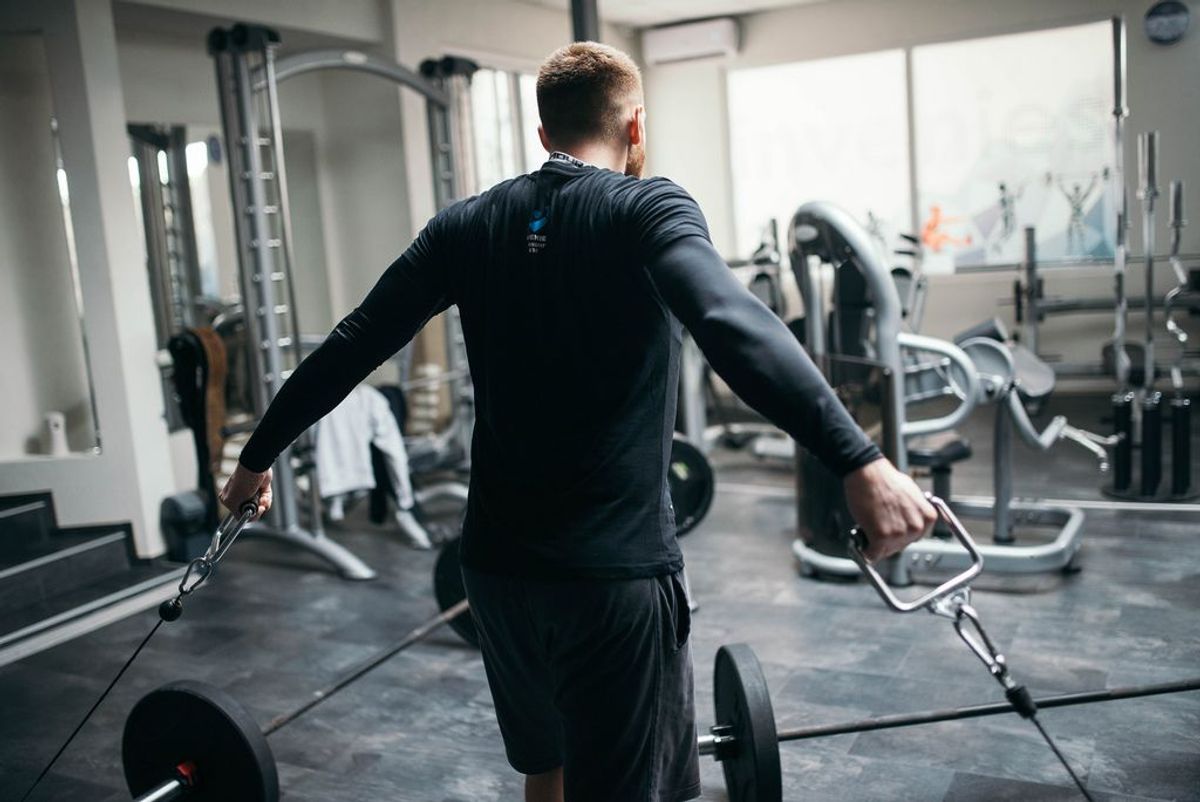
Refuel, Repair, Recharge: Maximizing Muscle Recovery Following Your Workout
Chow Down: Smart Nutrition for Muscle Mend

Protein Power: What to Eat Post-Workout
After you've crushed your workout, it's time to give your muscles the fuel they need to repair and grow. Protein is the building block of muscle recovery, so getting a good dose post-exercise is crucial. But not all proteins are created equal. Aim for high-quality, complete proteins that contain all the essential amino acids your body can't make on its own.
Chicken, fish, tofu, and legumes are all stellar choices. If you're on the go, a whey or plant-based protein shake can do the trick. Remember, timing matters too. Try to get that protein hit within 30 to 45 minutes after your workout for maximum benefit.
Your muscles are primed to absorb nutrients right after a workout, so don't miss that window of opportunity.
Here's a quick list of some top post-workout protein sources:
- Grilled chicken breast
- Salmon
- Tofu stir-fry
- Black bean salad
- Greek yogurt
- Cottage cheese
- Protein shake
Mixing these with a good source of carbs can help replenish energy stores and make the protein more effective. So go ahead, refuel smartly and watch your muscles thank you with gains!
Carbs Are Your Buddies: Timing Your Intake
Ever heard the saying, 'Timing is everything'? Well, when it comes to refueling with carbohydrates after a workout, it couldn't be more true. Your muscles are primed to soak up carbs and start the repair process immediately after you drop those weights. So, don't dilly-dally; aim to get some quality carbs in within 30 minutes post-exercise.
Glycogen, the stored form of glucose in muscles, gets depleted during your workout. Replenishing it quickly is crucial for recovery and for maintaining energy levels for the rest of your day. Here's a quick rundown of some carb-rich snacks that can do the trick:
- A banana with a smear of almond butter
- A small bowl of rice or quinoa
- A slice of whole-grain bread topped with honey
Remember, the type of carbs you choose matters just as much as the timing. Whole foods are your best bet for a full recovery package, packed with vitamins, minerals, and fiber.
And don't forget, while carbs are key, they're not the whole story. Pair them with a good source of protein to maximize muscle repair and growth. This dynamic duo works together to get you back in the game faster and stronger.
Hydration Station: The Role of Fluids in Recovery
Think of your body like a sponge after a workout – it's ready to soak up nutrients and water is the key to unlocking that absorption. Staying hydrated isn't just about quenching thirst, it's about optimizing recovery. After you've pushed your muscles to the limit, replenishing fluids is crucial to prevent dehydration and facilitate muscle repair.
- Drink water before, during, and after your workout.
- Rehydration isn't just water; electrolytes play a vital role too.
- Listen to your body – thirst is a late indicator of dehydration.
Remember, the color of your urine is a telltale sign of your hydration level. Aim for a light straw color to ensure you're on the right track.
While water is the MVP for most gym-goers, those engaging in prolonged or intense exercise might need an extra boost. Sports drinks can be beneficial as they contain electrolytes like sodium and potassium, which are lost through sweat. Just watch out for added sugars – your recovery drink shouldn't double as a dessert!
The Repair Workshop: Active Recovery Techniques

Stretch It Out: The Benefits of Flexibility Training
Ever felt like a rusty Tin Man the day after a killer workout? Stretching might just be your oil can. Flexibility training is the unsung hero of recovery, helping to keep those muscles long and limber. It's not just about touching your toes; it's about maintaining a range of motion that'll keep you in the game.
Stretching isn't just a cool-down routine; it's a vital part of keeping your muscles healthy and ready for action. Here's why you should make it a staple:
- Reduces muscle stiffness: Helps alleviate that post-workout tightness.
- Promotes circulation: Gets that blood flowing to your tired muscles.
- Decreases injury risk: More flexibility means less chance of pulling something next time you lunge for the remote.
Remember, flexibility training isn't a race. Take it slow, breathe through your stretches, and listen to your body. It's about quality, not just quantity.
And hey, while you're down there tying your shoelaces with ease, give yourself a pat on the back for taking care of your muscles. They'll thank you by powering you through your next workout with a little less groan and a lot more gusto.
Cross-Training: Keeping It Moving on Rest Days
Ever heard the saying, 'A change is as good as a rest'? Well, when it comes to recovery, cross-training can be that refreshing change your muscles crave. It's not about going hard; it's about going smart. On your rest days, engaging in low-impact activities like swimming, cycling, or yoga can keep the blood flowing and aid in muscle repair without overtaxing your system.
Cross-training isn't just about physical benefits; it's also a mental break from your regular routine. Mixing things up can rekindle your motivation and keep burnout at bay. Here's a quick list of cross-training activities to consider:
- Swimming: Gentle on the joints and great for cardio
- Cycling: Builds leg strength and endurance
- Yoga: Enhances flexibility and reduces stress
- Pilates: Improves core strength and stability
- Hiking: Boosts cardiovascular health and offers fresh air
Remember, the goal of cross-training on rest days is to engage in activities that are less intense but still keep you moving. It's about maintaining momentum while allowing your primary muscle groups to recover.
Massage and Foam Rolling: Ironing Out the Kinks
After pushing your muscles to the limit, it's time to give them some TLC. Massage and foam rolling can be your best pals when it comes to ironing out those post-workout kinks. Not only do they feel amazing, but they also help in reducing muscle soreness and improving circulation.
Foam rolling, in particular, is like having a personal masseuse on call. By targeting specific muscle groups, you can work out the tight spots and enhance your muscle's elasticity. Here's a quick guide on how to roll with it:
- Quads: Roll slowly from your hip to your knee, pausing on tender spots.
- Calves: Place the roller under your calf and roll from your ankle to below your knee.
- Back: Keep the roller under your lower back and gently roll towards your shoulders, avoiding the neck.
Remember, consistency is key. Regular massage and foam rolling sessions can significantly expedite your recovery process and get you ready for your next workout faster.
While it's easy to think of these techniques as a luxury, they're actually a crucial part of your recovery toolkit. So, make some space next to your protein shakes and resistance bands for that trusty foam roller – your muscles will thank you.
Catch Those Zs: Understanding Sleep's Role in Recovery

Sleep Cycles and Muscle Repair: Making the Connection
Ever wondered why you feel like a superhero after a solid night's sleep? Well, it's not just your imagination. Sleep is the unsung hero of muscle recovery, and it's all about those zzz's syncing up with your body's repair schedule. During the deeper stages of sleep, your body goes into overdrive, repairing the micro-tears in muscle fibers caused by your workout.
Sleep cycles play a crucial role here. Each cycle consists of stages, including REM (Rapid Eye Movement) and non-REM sleep, and you need to cycle through these multiple times for optimal recovery. Here's a quick rundown of what happens:
- Non-REM Stage 1 & 2: Your body is easing into sleep, slowing down and prepping for the deep work ahead.
- Non-REM Stage 3: This is the deep, restorative sleep where growth hormone is released, aiding in muscle repair.
- REM Sleep: Your brain is active, consolidating memories and learning, which is key for motor skills.
Remember, it's not just about quantity but also quality. A disrupted sleep pattern can throw a wrench in your muscle recovery, no matter how many hours you clock in.
So, make sure you're setting the stage for a good night's rest. A consistent sleep schedule, a cool, dark room, and ditching screens before bed can make all the difference. Your muscles will thank you with readiness for the next day's challenges!
Nap Time: Short Sleeps for Big Gains
Ever felt like you hit a wall after a grueling workout? A quick nap might be the turbo boost your muscles need. Napping isn't just for toddlers; it's a strategic move for athletes seeking peak performance and speedy recovery. Think of it as a pit-stop for your body, allowing for minor repairs before you rev up again.
Power naps can be especially beneficial if you're running low on nightly Zs. They're like pressing the refresh button, giving you a burst of alertness and improved motor performance. But keep it short – aim for 20-30 minutes to avoid grogginess.
- Duration: 20-30 minutes
- Benefits: Increased alertness, improved mood, enhanced performance
- Timing: Post-workout or during a midday slump
Remember, the goal is to emerge from a nap feeling recharged, not disoriented. Timing is everything – too long and you'll dip into deeper sleep cycles, making it harder to bounce back.
Creating a Sleep Sanctuary: Setting the Stage for Quality Rest
Transforming your bedroom into a sleep sanctuary is a game-changer for muscle recovery. The environment where you snooze directly impacts the quality of your rest. Ensure your room is cool, dark, and quiet to promote uninterrupted sleep. Consider investing in blackout curtains and a white noise machine to block out distractions.
- Keep electronics out of the bedroom to avoid blue light exposure before bed.
- Choose a comfortable mattress and pillows that support your body.
- Establish a relaxing pre-sleep routine, like reading or gentle stretching.
Creating a consistent sleep schedule is crucial. Going to bed and waking up at the same time every day sets your body's internal clock, which can enhance sleep quality.
Remember, a sleep sanctuary is personal. What works for one person might not work for another, so it's important to find what helps you drift off into a restorative slumber.
Supplement Your Efforts: Navigating the World of Recovery Aids

Branched-Chain Amino Acids (BCAAs): Hype or Help?
Ever wondered if those BCAA supplements are worth the buzz? Branched-Chain Amino Acids are like the VIPs of the protein world, playing a crucial role in muscle repair and growth. But do you really need to shell out on supplements, or can you get enough from your diet?
BCAAs are made up of three essential amino acids: leucine, isoleucine, and valine. They're called 'essential' because your body can't make them on its own. Here's the lowdown on what they do:
- Leucine: The big boss of muscle protein synthesis.
- Isoleucine: Helps with energy uptake and preserves muscle protein.
- Valine: Plays a part in stress response and immune function.
While BCAAs are found in protein-rich foods like chicken, beef, and eggs, supplements can offer a concentrated dose that's easy to consume post-workout. But remember, more isn't always better. Your body can only use so much, and the rest? Well, it's just expensive pee.
So, are BCAAs the secret sauce to muscle recovery, or just a pricey placebo? The truth is, they can help, especially if you're pushing your limits or not getting enough protein from your diet. But for most gym-goers, a well-rounded diet might just do the trick.
The Lowdown on Creatine: Recovery Friend or Foe?
When it comes to post-workout recovery, creatine is a hot topic. It's one of the most researched supplements in the fitness world, and for good reason. Creatine can help replenish your energy stores, allowing for quicker recovery and improved performance during your next workout.
But not all creatine is created equal. Here's a quick rundown on what to look for:
- Micronized Creatine Monohydrate: This form is more easily absorbed by the body.
- Creatine Ethyl Ester: Claimed to be even more effective, but research is mixed.
- Buffered Creatine: Supposed to reduce side effects, but may not be more effective than monohydrate.
Remember, while creatine can be a powerful ally, it's not a magic bullet. > Hydration is key when taking creatine, as it can draw water into your muscles and away from other areas of the body. This means you should drink plenty of fluids to avoid dehydration.
Lastly, consider the timing of your creatine intake. Taking it post-workout with a carbohydrate source can enhance its uptake into the muscles. But, as with any supplement, it's essential to listen to your body and consult with a healthcare professional before starting. After all, individual responses to supplements can vary widely.
Vitamins and Minerals: The Micronutrient Boost
When it comes to muscle recovery, don't overlook the mighty micronutrients. Vitamins and minerals are crucial for the repair and strengthening of muscle tissue after a grueling workout. They act like a pit crew for your body, fine-tuning the complex machinery that keeps you running at peak performance.
Your body is a high-performance engine that requires the right kind of fuel. Vitamins such as C, E, and the B-complex, along with minerals like magnesium, zinc, and iron, play pivotal roles in energy production and muscle contraction.
Here's a quick rundown of some key players:
- Vitamin C: Aids in collagen production and offers antioxidant protection.
- Vitamin E: Helps protect muscle cells from damage.
- B-complex vitamins: Essential for energy metabolism.
- Magnesium: Involved in muscle function and relaxation.
- Zinc: Crucial for protein synthesis and immune function.
- Iron: Important for oxygen transport in the blood.
Remember, while supplements can help, the best way to get these nutrients is through a balanced diet packed with fruits, vegetables, lean proteins, and whole grains. Your muscles will thank you for the extra attention to these tiny but mighty dietary details.
Mind Matters: The Psychological Aspect of Muscle Recovery

Stress and Recovery: Finding the Balance
Ever felt like your muscles were more knotted than your earbuds after a jog? That's stress, buddy, and it's sneaking into your recovery time. Stress can be a real gains goblin, gobbling up the benefits of your workout without you even knowing it. But fear not, there's a way to tame that beast.
Balance is key here. Just like you balance your diet, you've got to balance your stress levels to maximize muscle recovery. Here's a quick rundown of stress-busting tactics:
-
Chill out: Take time to relax each day, whether it's reading a book or just zoning out to your favorite tunes.
-
Get social: Laughing and hanging with friends can lower stress hormones like cortisol.
-
Stay positive: A positive mindset can work wonders on your stress levels and recovery.
Remember, recovery isn't just about what you do, but also what you don't do. Taking the time to de-stress is just as important as the time you spend pumping iron.
Meditation and Mindfulness: Mental Techniques for Physical Gains
Ever thought your brain could help your muscles? Well, it turns out, meditation and mindfulness might just be the secret sauce to boosting your recovery game. Engaging in regular meditation can significantly reduce stress levels, which in turn, can lower cortisol in the body. This is key because high cortisol can interfere with tissue repair and growth.
- Find a quiet space
- Set a timer for 5-10 minutes
- Focus on your breath
- Acknowledge wandering thoughts and return to your breath
By incorporating mindfulness into your routine, you're not just zoning out. You're zoning in on a calmer mind and a body that's better equipped to heal. Remember, recovery isn't just about what you do physically; it's about how you support those efforts mentally, too.
The Placebo Effect: Belief in Your Recovery Regimen
Ever popped a sugar pill thinking it was a magic muscle mend? That's the placebo effect at work, and it's pretty powerful stuff. Belief can significantly influence your body's recovery process, even if what you're believing in doesn't have a direct physical effect. It's all about the mind-body connection, folks.
- Positive Thinking: Just believing you're doing something beneficial can trigger a cascade of recovery-boosting reactions.
- Expectation: Your brain can actually mimic responses expected from real treatments.
- Perception of Effort: Feeling less fatigued can be a self-fulfilling prophecy when you trust in your regimen.
Remember, the placebo effect isn't about tricking yourself; it's about harnessing the power of positive thinking to aid in recovery. While it's no substitute for real nutrition and rest, never underestimate the boost your mindset can give to your muscle bounce-back game.


